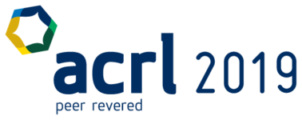Session Description:
There are often proper and neutral unspoken rules in academic circles this is part and parcel of how Whiteness operates. More recently, there are many efforts to increase diversity efforts that inadvertently serve as tools to impose uniformity in a way that flattens social interaction while sustaining racial hierarchies; those who do not uphold these shared codes of social behavior are sanctioned accordingly. But those efforts are framed as raceless and in the process, a central narrative (embedded in Whiteness) survives. Thus, Whiteness hardens the inner workings of academic spaces, yet it remains invisible as it operates. In this talk, I will elaborate on the ways in which our tacit approval of Whiteness, and the enactment of its rules, enables it to extend, to the point of countering any diversity efforts. Moving beyond difficult conversations on diversity, this session makes evident the workings of Whiteness in and through the everyday. The goal is to illustrate how structural issues of Whiteness (as a force that sustains hegemonic, neutral ways of being/behaving) interplay with the seemingly mundane, and the interactional, in everyday life. Sponsored by the University of California, Irvine Libraries
